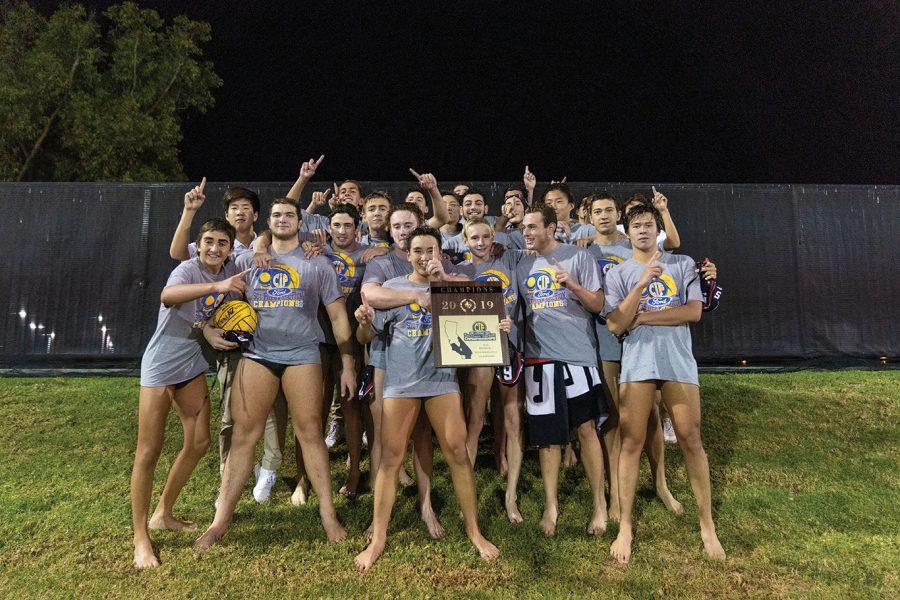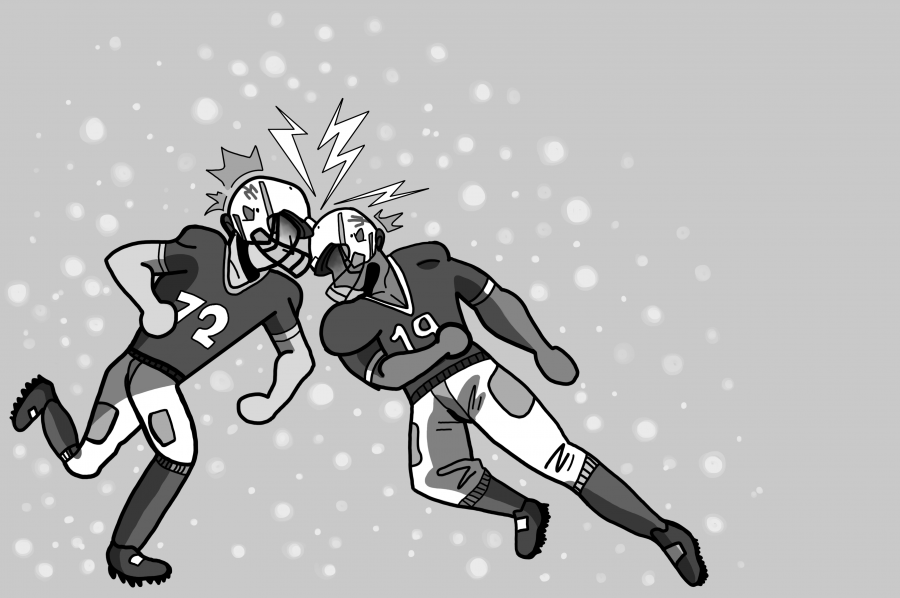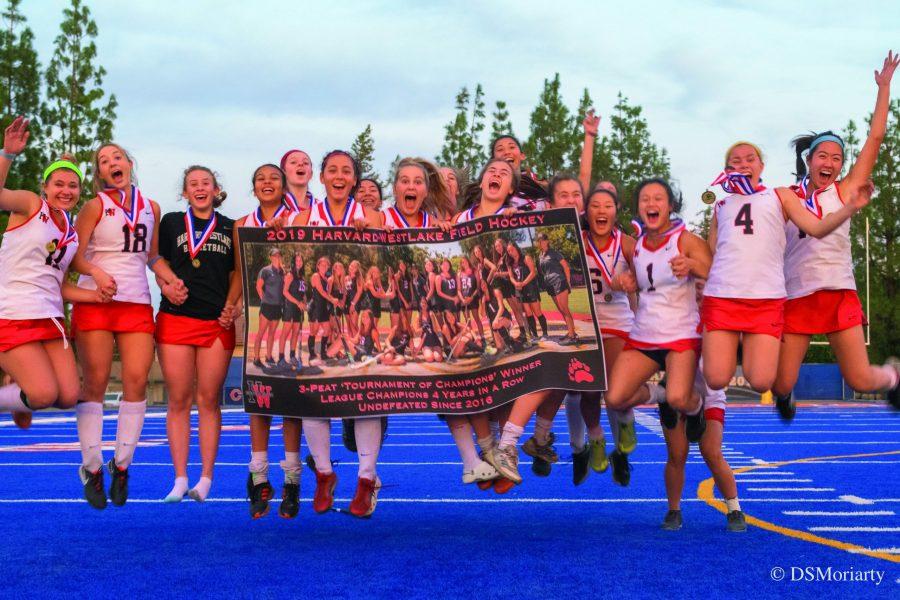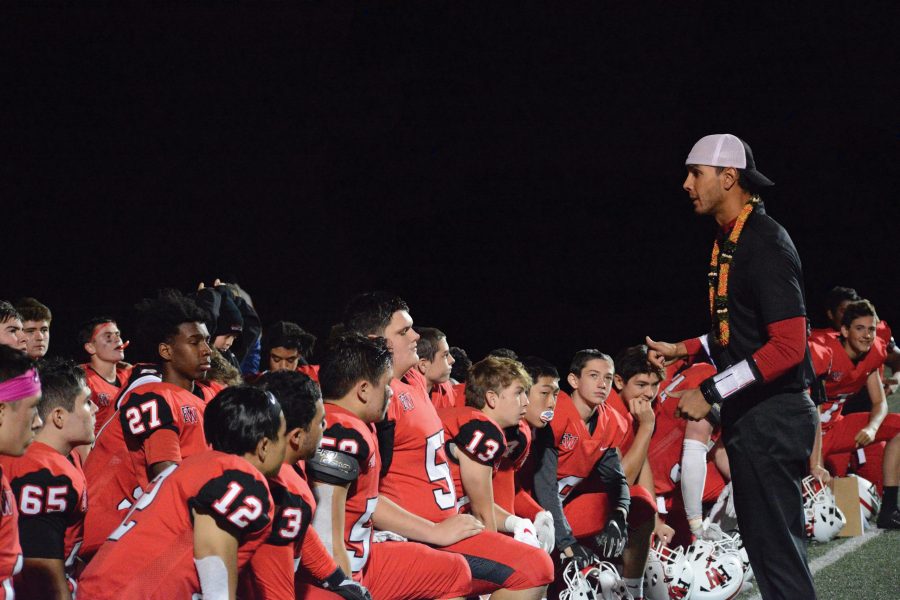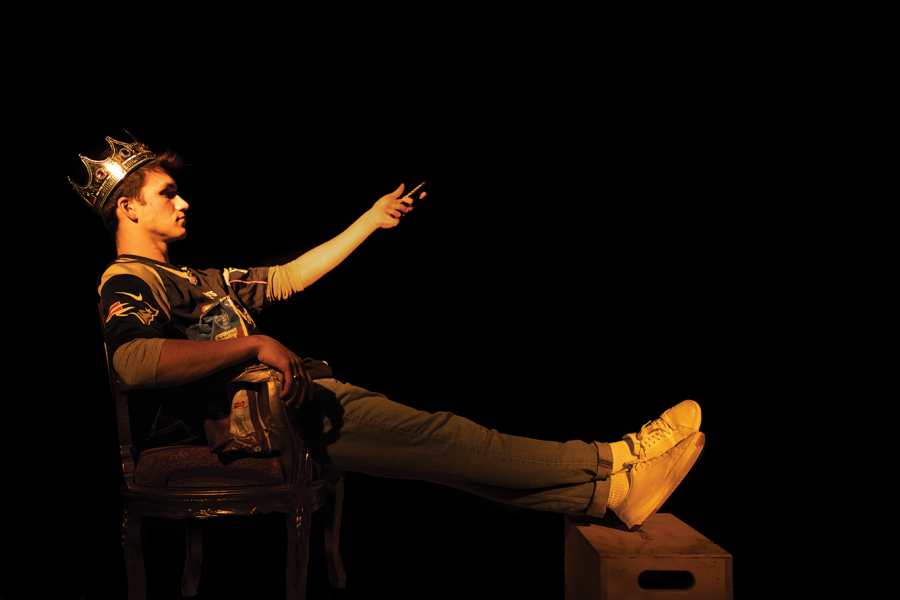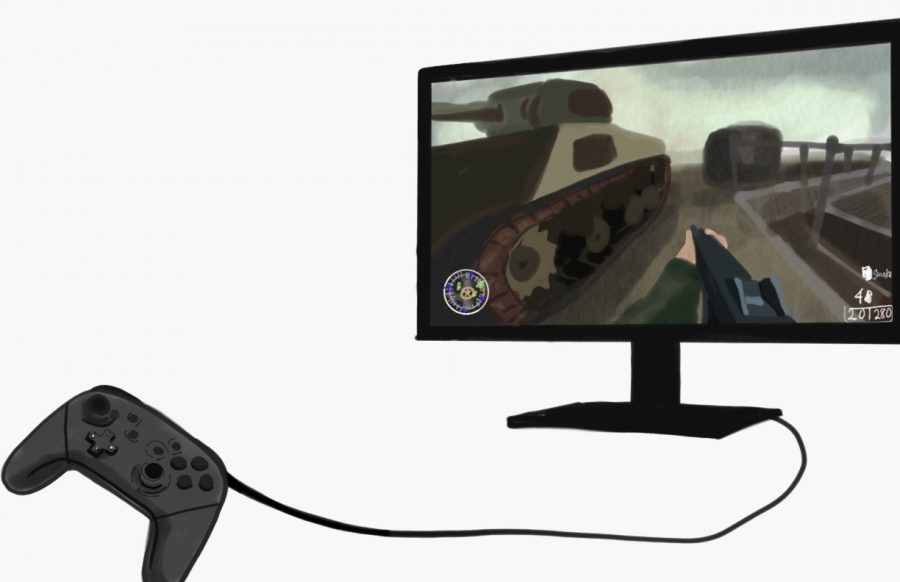The CIF Championship is a game that few high school athletes compete in, however, for the boys’ water polo program, CIF Championships have become a common occurrence, attacker Shay Gillearn ’21 said. In 2018 and 2019, the boys’ water polo team won the CIF Championship in two of the biggest games of the players’ lives, but they remained calm like it was the regular season, Gillearn said.
“It was basically no different,” Gillearn said. “We were all ready. It was just like a normal day in the office.”
The composure of the squad is a result of the school-affiliated club team, Los Angeles Premier Water Polo Club, several members of both the club team and the school team said including Gillearn.
Los Angeles Premier is one of the best water polo programs in Southern California, winning three Junior Olympic gold medals and consistently finishing as one of the top four club water polo teams in the tournament, goalkeeper Asher Schwartz ’21 said. One benefit of having a program like Los Angeles Premier is that it attracts potential water polo players to the school, Gillearn said.
However, the relationship between the club and players is mutual and Gillearn spoke about playing for Los Angeles Premier and how it impacted his choice of school.
“One of the main reasons I am [at Harvard-Westlake] is because of Premier,” Gillearn said.
While practicing beyond the school season can be a large commitment, Schwartz described the benefits of playing water polo throughout the year.
“Playing with club definitely helps because it doesn’t feel like there is a difference,” Schwartz said. “It’s the same team, same coaches throughout the whole year, so when it is actual varsity it doesn’t feel that different. It’s just another game.”
In 2019, the boys’ water polo team won its second consecutive CIF Division I Southern Section title. Schwartz discussed the contribution the club team made to the successful season.
“[The club] was definitely a big factor of our victories,” Schwartz said. “We come in at the beginning of spring and go through the entire summer together and so once it is season, we pretty much have our team established. We don’t need to play a lot of actual varsity games in order to figure out where our team is at because we have been doing it for months already.”
Los Angeles Premier recently expanded its program and in the spring of 2016, the club started a high school girls’ water polo team. The Wolverines reached the CIF Division III finals in the 2017-2018 season and finished the year 27-3, proof that the creation of the new club girls’ water polo team led to success and better team chemistry, center defender Abby Wiesenthal ’20 said.
Wiesenthal described how playing on a unified club team in the offseason helped the Wolverines improve in the 2017-2018 season.
“I think that playing Premier was really important to our success,” Wiesenthal said. “Our Premier team was basically our Harvard-Westlake team so we were able to practice eleven months a year together. I think that made the team very close and made us a more cohesive unit. What we have is very special because most high school teams don’t have a club team that is identical to their school team; rather, they all play on different clubs and only play together during their school season. By playing together all year round, we were able to become super disciplined in our game and really know each other as teammates.”
Other than the boys’ and girls’ water polo teams, the baseball program has affiliated club team Pacific Baseball Academy, also known as PBA, with Harvard-Westlake baseball program head Jared Halpert and Athletic Director Matt Lacour both serving as coaches for the team.
Unlike Los Angeles Premier, PBA is spread throughout Los Angeles, containing teams from Encino, West Los Angeles and the Pacific Palisades.
Varsity catcher Bennett Markinson ’21 described how playing for PBA allowed him to assimilate into the school baseball program.
“[Playing PBA] helped a lot because I got close with the coaches and the way the program was run,” Markinson said.
For infielder and pitcher Noah Yun ’21, PBA allowed him to quickly adapt to the schematics of the baseball program.
“[PBA] definitely helps you get adjusted faster to the [school] system in terms of little details and plays we do,” Yun said.
The Harvard-Westlake baseball program has had several years of success, finishing the 2013 season as the best high school baseball team in the nation according to MaxPreps and reaching the CIF Division I Southern Section finals in 2016.
Not only has the team played at a high level, but several players continue to play through college. Since 2014, 21 Wolverine baseball players have gone on to play college baseball.
This movement of school-affiliated club teams has shifted over to other Harvard-Westlake programs in recent years. In 2015, assistant girls’ field hockey coach Taylor Swezey founded West Coast Riptide, a field hockey club team based out of Los Angeles. The team competes nationwide, playing tournaments in Los Angeles and Orlando. Ten players in the school field hockey program play for the club, defender Iris Huang ’21 said.
Since the club’s founding in 2015, the Wolverines have won three Los Angeles Field Hockey Association Championships and are undefeated since 2016. Huang described how the club program has allowed the team to overcome the loss of seniors every year.
“The club was very beneficial to the school season because we got to play with incoming freshmen and middle schoolers,” Huang said.
Although club sports can be beneficial to a sports program, it can sometimes be too much of a burden for some players in the offseason, former junior varsity soccer player Faramarz Nia ’21 said. Nia, who was cut due to his lack of interest in playing club soccer, discussed the negative aspects of having a continuous season.
“[Club soccer] eats up a lot of your time, in terms of academic things,” Nia said. “You can’t spend as much time doing school work, especially on days where you have to double up in a certain sport, it is unreasonable. Also, it’s not like it is cheap, it is expensive, so it is an investment.”
However, Nia also admitted that his choice to not play club soccer would change if there was a school affiliated team he could play with fellow peers.
“I think I would [play Harvard-Westlake club soccer] because there is a certain level of community you get from that which is very enjoyable,” Nia said.
The boys’ basketball team reached the semi-finals of the CIF Division I Southern Section tournament and qualified for state playoffs last year, without an established club program in the years before.
However, the success of the baseball, water polo and field hockey programs have impacted the shape of the boys’ basketball program at Harvard-Westlake. During the 2018 season, boys’ basketball program head David Rebibo founded a youth club team, Los Angeles Basketball Club. Rebibo described his motivation to start this club program.
“We started LABC to provide everyone and anyone an opportunity to develop and grow as a basketball player,” Rebibo said. “We want the best for all players and felt that this would help provide that.”
Rebibo described the other Harvard-Westlake sports programs as an influence to start LABC.
“I was inspired by other programs of course,” Rebibo said. “The idea of development was a major factor for us. Another major factor or inspiration was the lack of understanding of basic basketball principles and fundamentals, things that are essential to being successful as a basketball player and member of a team.”
The ultimate goals of these programs are to develop team chemistry and talent in the offseason, in hopes of being able to sustain them all year long. Schwartz believes that despite the time commitment, club sports are necessary to be a great program.
“If teams want to have reliable and consistent team chemistry, as well as continuous development and success throughout the year then [teams should have club programs],” Schwartz said.































